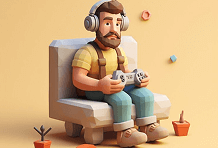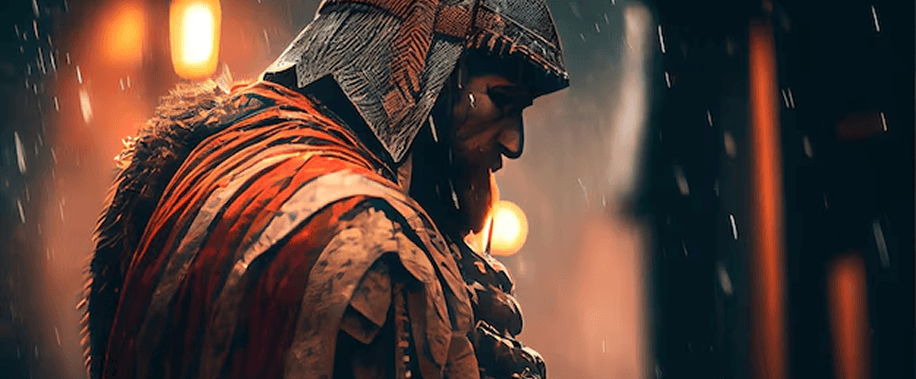
NFT Game Development
Revolutionizing Blockchain Gaming With NFT Game Development Company
We specialize in crafting next-gen NFT gaming ecosystems that merge digital ownership with engaging, play-to-earn experiences.

12+
Years of Expertise
50+
Projects Completed
10M+
Game Downloads

Our Comprehensive NFT Game Development Services
With a group of blockchain and game development specialists on board, our best nft game development company offers high-quality and efficient NFT gaming solutions that meet the current market demand.
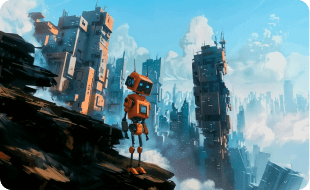
Custom NFT Game Development
Our NFT games are engaging with their unique mechanics and gameplay, the secure smart contracts, and, of course, the integration of actual asset ownership.
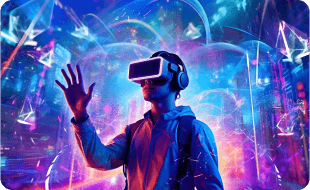
NFT Game Design
We provide exciting and immersive NFT game environments, interfaces, and assets that compel players to get involved.
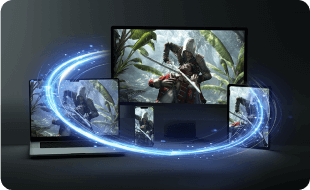
Metaverse Integration
By incorporating NFT games in metaverse, game users enjoy persistent, interconnected as well as highly-immersive gaming experiences.
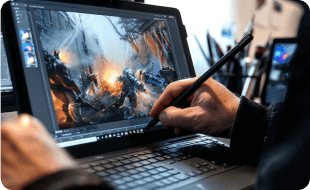
Cross-Platform NFT Gaming
To attract players, our NFT games function seamlessly on the web, mobile, desktop, and augmented and virtual reality interfaces.
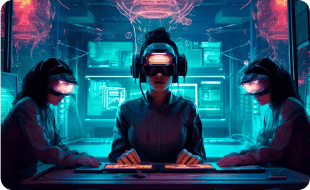
NFT Marketplace Integration
Our offerings are real-time in-game NFT marketplaces, which allows the player to trade, sell, and buy in-game assets.

Playable NFT Prototypes
When testing the effectiveness of NFTs, we use prototypes to check the feasibility of the actual mechanics, gameplay, and economics.

Blockchain Porting & Migration
You can easily port your NFT games to various platforms such as Ethereum, Polygon, Solana and other blockchains.

NFT Character Creation
Our artists create beautiful and negotiable avatars for video games, enhancing the game’s appeal and the player’s persona.

3D NFT Asset Rendering
We create photorealistic & game ready 3D NFTs that work well in games, metaverse & collectible spaces.
The NFT Gaming Advantage
Why Choose Our NFT Game Development Studio?
In search of a talented team that would implement the latest blockchain solutions for enhancing fun and secure NFT games or artistic projects? We are a team of professional NFT game developers providing complex solutions using the best token standards, smart contracts, and interactions. The NFT Gaming Market size is estimated at USD 0.54 trillion in 2025, and is expected to reach USD 1.08 trillion by 2030, at a CAGR of 14.84% during the forecast period (2025-2030). Be it a trading card game or metaverse based role-playing game or any p2e game, we design and develop engaging NFT games that drive consumer attention and consumption.








Turn Your NFT Game Idea Into Reality: A Complete Development Journey
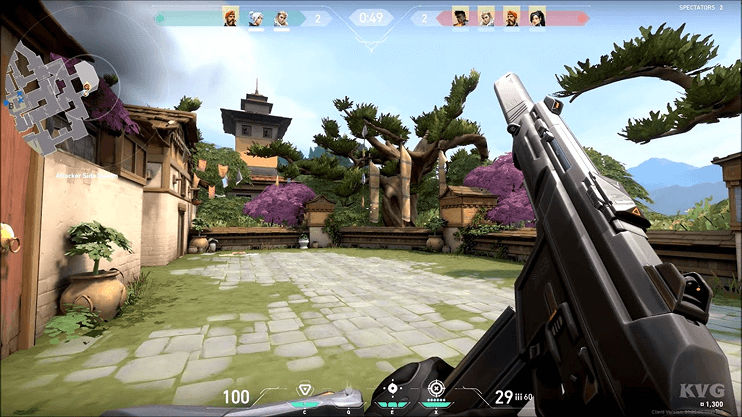

Ready to Launch the Next NFT Hit?
Welcome to the era of NFT game development services by our professional development team. No matter if you’re after the collector audience, gamers, or metaverse dwellers — we are here to craft your Web3 success story.
Get Started

Getting Started with NFT Game Development

How Much Time Does It Take to Develop an NFT Game?
The number of days that will be taken to complete an NFT game depends on various factors such as; the set goal and objectives, the design, flexible blockchain solutions, and the kind of game to be practiced. In general, the estimated time is from 3 to 6 months for basic NFT based games or games with a small number of features in the first year and a limited user environment. However, such more extensive development processes take even longer and may take 12 to 24 months or even more time for such projects as Open World NFT games, Play-to-Earn (P2E) ecosystems, or Isometric NFT strategy games.
Key phases in the NFT game development timeline include:
- Concept Development: Defining the game idea, NFT utility, tokenomics, and playability.
- Blockchain Architecture Setup: Choosing blockchain networks (e.g., Ethereum, Polygon, BNB Chain), setting up wallets, smart contracts, and NFT standards (ERC-721, ERC-1155).
- Game Production: Creating assets, coding mechanics, integrating NFTs, and securing user data.
- Testing & Optimization: Cross-platform testing, bug fixing, and gas fee optimization.
- Launch & Post-Launch Support: LiveOps, NFT drops, marketplace integration, and user onboarding.
Additionally, more time is needed for Open World NFT games since the concept implies the vast map design, dynamic use of NFT assets, active interaction with smart contracts, and sophisticated AI and NPC behavior. In the same way, the Isometric NFT games require perfect squares, the homogeneity of visuals, as well as the interactivity in the block chain.
Therefore, the above timeline depends on the level of customization Is, number of NFTs, the blockchain on which it will operate, and the level of immersion or competitiveness of the gameplay required.
How Do NFT Game Development Services Add Value to My Gaming Project?
Working with an experienced NFT game development company brings a great value – whether you’re creating a new card game with NFT or a type of game-to-earn, or a huge open-world MMORPG with NFT elements. For many games that are developing with 3D graphics, using blockchain or/and creating decentralized economies, professional support guarantees having a technically sound product that will look and feel good, and can generate revenue.
Here are some of the ways through which NFT game development services are useful:
- Immersive Player Experience
- Interoperability & Platform Reach
- Future-Proof Web3 Integration
- Customization and Long-Term Support
Positive aspects of integrating NFTs into the games are related to uniqueness, scarcity and tradability of these assets. It is up to the developers to implement these assets within the LoT and the background and functionality of the game. As for characters, weapons or skins, NFTs can bring ownership-based gameplay, which can help players to get engaged.
Senior NFT developers are also capable of developing games following PC, mobile, and console interfaces that are compatible with multiple chain systems. If you’re launching on Ethereum for security or Polygon for low gas fees, your NFT game can go global, thus experiencing less friction.
Web 3.0 encompasses NFT gaming and other initiatives, so getting professional assistance in developing your game is a wise move. From issues related to metaverse and others like DeFi and DAO implementation, professional studios guide you to make the right technical choices that will ensure long-term sustainability.
NFT game development companies do not merely develop the main game but help in building ecosystems. These are services related to in-game markets, staking, burning tokens, and setting royalty systems which create a more dynamic and customizable gaming environment. Furthermore, long term technical support, the giving of updates through player feedback, bug resolutions and constant NFT drops will keep players engaged after the game’s launch.
What Are the Key Benefits of Outsourcing NFT Game Development Services?
Hiring professionals to develop your NFT games gives you access to mastery of blockchain technology, short development time, and affordable materials/meanwhile not compromising the quality. Currently, startups, indie studios, and even large-scale publishers are outsourcing blockchain and NFT game developments to meet customer demand and minimize risks.
Here are the top benefits:
- Access to Specialized Blockchain & Game Development Talent
- Blockchain developers skilled in smart contract programming (Solidity, Rust, etc.)
- NFT artists and 3D modelers who understand crypto culture and scarcity mechanics
- Game developers experienced with Unity, Unreal Engine, and Web3 integrations
- UI/UX designers focused on wallet connection, onboarding, and player navigation
- Tokenomics strategists who design sustainable in-game economies
- Faster Time to Market
- Shorter development cycles with experienced pipelines
- Rapid bug identification and resolution
- Seamless integration with NFT marketplaces and wallets
- Efficient scaling of development resources based on demand
- Cost Efficiency and Strategic Budget Allocation
- No need for office infrastructure, full-time salaries, or equipment
- Flexible pricing—hourly, fixed-bid, or revenue-share models
- Ability to scale up or down based on development phase or funding
- Predictable budgeting with no hidden costs
- Flexibility and Post-Launch Support
- LiveOps, NFT airdrops, and in-game events
- Patch releases and performance updates
- Player analytics and retention strategies
- Multi-platform porting (e.g., to VR, AR, or console platforms)
MYou gain instant access to a multidisciplinary team:
This level of specialization is hard to assemble in-house without significant investment.
TOutsourcing propels your subject to advance at a faster rate since there are key activities of game creation such as code writing, smart contracts, creation of game assets, and testing which can be conducted simultaneously. Due to lean approach to project management and points-based monitoring, outsourced teams ensure that an MVP is delivered as quickly as possible, with gradual improvements made to the overall experience.
Benefits include:
Rapid expansion is a critical success factor in highly competitive segments such as speculative collectibles, trading card games, and new metaverse areas.
Usually, forming a full in-house team for NFT game development would cost a pretty penny especially given that blockchain solutions are still relatively new on the market. Outsourcing also refers to passing out work to others in anticipation, which in turn ensures one pays for only that which has been required in that particular period.
Some cost-saving benefits include:
This is because it assists in risk management more efficiently during the initial times of game validation and fundraising.
A good outsourcing partner is not only a provider of code but a strategic ally for successful changes and adaptations in the sphere of NFTs. From expansion of the number of NFT collections, inclusion of the collections supporting particular seasons into the game, to the adaptation of the whole game to VR, outsourcing teams are usually flexible.
Post-launch support typically includes:
This flexibility ensures your game stays competitive, community-driven, and technologically updated.
What Factors Influence the Cost of NFT Game Development Services?
When it comes to planning and development of your NFT game, the question of how much to spend would naturally arise. The reality of the matter is that there isn’t really any one solution to this problem.
Naturally, the cost of developing an NFT game depends on a number of parameters, which include the integration of blockchain and token economy, the type of game to be developed, the style of the illustrations to be used, and the project’s complexity. Games that will have complex NFT mechanics such as play-to-earn, metaverse, or a decentralized marketplace will need more investment than random P2E or collectible-based games.
Let’s break down the core elements that influence the cost of developing NFT-based games:
- Game Type and Complexity
- P2E Open World NFT games encompass open environments, multiplayer integrated, staking functionality and multiple smart contacts integration. These are generally the most costly to construct, and this because the construction process generally involves quite a number of processes.
- P2E Isometric NFT strategy games like Relic Raiders may be cheaper to develop but may still need rich UI, the grid mechanism, and well-developed asset tokenization.
- Blockchain Integration
- Supported blockchains (Ethereum, Polygon, Solana, BNB Chain, etc.)
- Smart contract complexity
- Wallet connectivity (MetaMask, WalletConnect, etc.)
- Gas optimization strategies
- NFT Asset Creation and Tokenization
- 3D character and asset modeling (custom NFTs)
- Minting and metadata encoding
- Storage solutions (IPFS or on-chain vs off-chain models)
- Marketplace integration (custom or third-party like OpenSea)
- Gameplay Features and Web3 Mechanics
- NFT marketplace or auction house
- Smart contract-based rewards
- Token staking and liquidity pools
- In-game economy (DeFi + NFT combo)
- Cross-chain interoperability
- Development Team Size and Location
- Studios in North America or Western Europe typically charge more.
- Outsourcing to experienced Web3 developers in Eastern Europe, India, or Southeast Asia can reduce costs without compromising quality.
- Freelancers may be cheaper initially but could lack long-term scalability or support.
- Production Timeline
- Basic Collectible NFT Game: $20,000 – $60,000
- Mid-Level P2E Game with Custom NFTs: $70,000 – $200,000
- Open World Metaverse NFT Game: $250,000 – $1M+
Your game’s concept and mechanics will significantly shape the budget. For example:
The deeper your game mechanics and ecosystem go, the more development time—and cost—is involved.
Choosing the right blockchain matters. Integration efforts and costs vary depending on:.
Layer 2 solutions or sidechains may reduce long-term transaction fees but require more setup during development.
Visual assets and how they're tokenized into NFTs are major cost drivers. Consider:
Your vision for NFTs—whether collectibles, skins, weapons, or virtual land—will shape both cost and scope.
The more features you pack into your NFT game, the higher the cost. Key components might include:
Each of these adds layers of technical infrastructure and quality assurance requirements.
Hiring a development team varies widely in cost based on their size, skill, and location.
Time impacts cost. An NFT game that can take about 3-6 months to develop will be much cheaper than a highly complex blockchain game that will take 12-18 months to develop at most. In general, longer timeframes imply more detail and effort in terms of testing and ideas gathered throughout the creativity process.
Estimated Cost Ranges (for NFT Game Projects):
A precise estimate requires a thorough consultation and scope breakdown.
What Should I Prepare Before Partnering with an NFT Game Development Company?
Beginning an NFT game project is always very exciting, but preparation in advance is recommended to avoid complications during collaboration with your development team. Whether you are planning to create an NFT collectibles-based game or a full-blown metaverse, planning mitigates factors such as misunderstanding, shifting goals, and technicalities.
Here’s what you should organize before engaging a professional NFT game development company in USA:
- Define Your Game Vision
- Game genre (e.g., card battler, open world, RPG)
- Role of NFTs (characters, items, land, rewards)
- Blockchain(s) you want to use
- Art direction (2D, 3D, pixel-art, stylized)
- List Essential Features
- NFT minting or breeding mechanics
- NFT marketplace with buy/sell/trade functionality
- Wallet integration (e.g., MetaMask, Coinbase Wallet)
- Reward or staking systems
- In-game token economy
- Know Your Budget Range
- Gather Inspirations
- Prepare for Ongoing Collaboration
- Join planning calls and design reviews
- Respond to feedback and share input
- Make timely decisions on art, blockchain selection, or monetization
Clarify your core concept. Think about:
Even a rough game design document or pitch deck can help developers align with your vision.
What features must your NFT game include? Examples might be:
Prioritizing features upfront helps developers structure your project in achievable milestones.
It is not necessary to state a definite number of team members, but the global number indication will help your development partner decide on the technology stack, the list of features, and the staff size. Remember, that the blockchain side increases the cost not only compared to the development of the game as a product but also compared to hiring a team of developers.
If you are excited by certain games or NFT platforms, do not hesitate to recommend them to your friends. It is something created like the artwork from ‘Axie Infinity’ or the gameplay of ‘Illuvium’; they assist developers with the desired creative and functional direction.
NFT game development isn’t a one-and-done task—it requires continuous communication. Be ready to:
An active partnership is key to building something truly immersive and unique.
FAQ
Answers to the most frequent question.

Build Interactive NFT Worlds with a Trusted Partner
Are you now planning to turn your blockchain game idea into an effective and successful NFT business model? StrikeOneStudios is a company developing NFT games, where mechanics, graphic design, and technical solutions are thoroughly based on blockchain.








